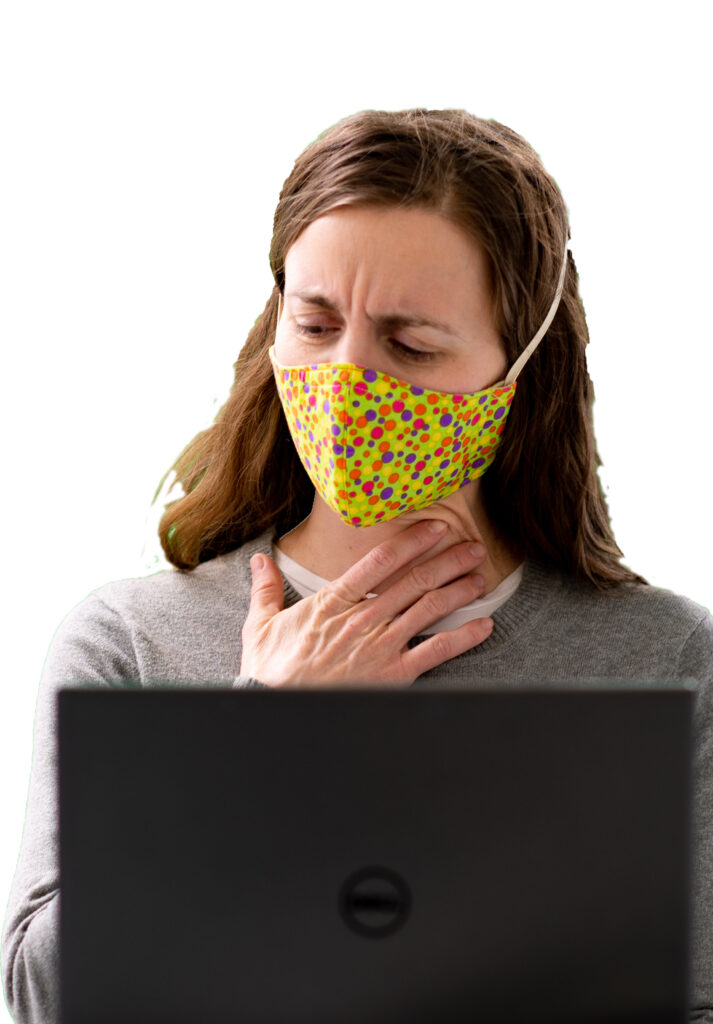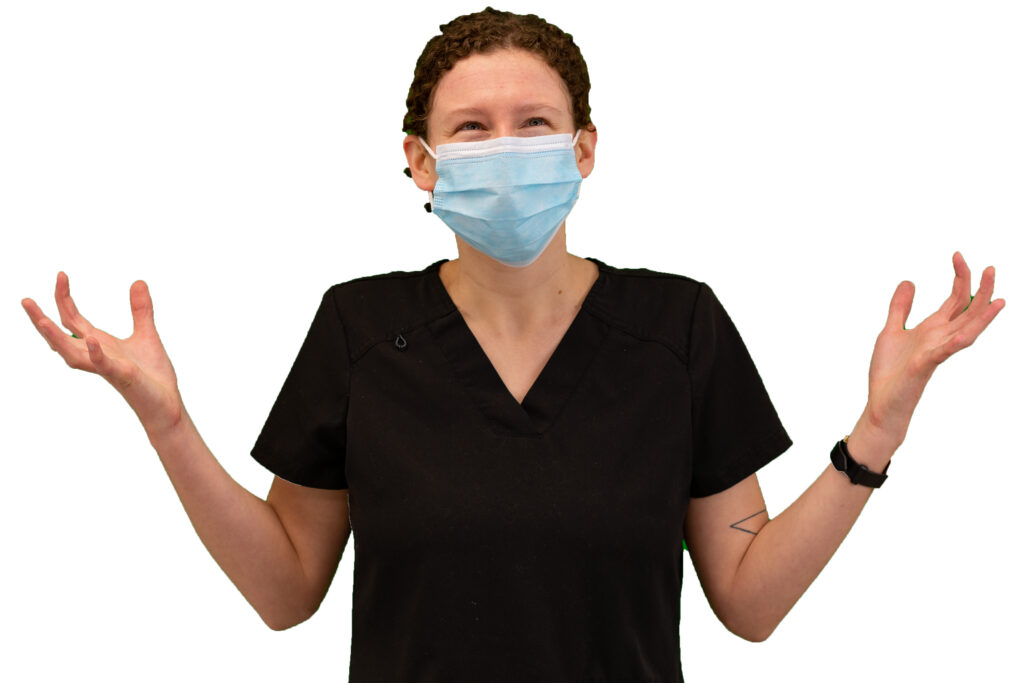More patients than ever are seeking care for voice stress caused by speaking while wearing masks, according to voice and airway experts in the Department of Otolaryngology at Washington University in St. Louis. Speech-language pathologist Megan Radder explains what patients are experiencing and how the Voice & Airway Center can help.

Is voice stress a bigger problem now than it was prior to mask mandates?
We absolutely have many patients coming in saying they are struggling with their voices due to speaking through a mask. People are also having a hard time hearing and understanding them. Many people feel like it’s harder to breathe, which can cause tension as well.
Communication with our voice is really multidimensional. We express emotion with our voices. This pandemic has been stressful. Combine that with wearing a mask, which alters how we hear and use our voices, and you get a perfect storm to create voice problems.
What are the symptoms patients complain about that suggest voice stress?
The complaints described by our patients are what you might expect from overuse:
- losing their voice or becoming hoarse
- raspy voice
- throat and voice fatigue
For example, one patient complained of strain when talking/singing for more than 10-15 minutes. Her vocal fatigue that often lasted days after voice use, and she experienced reduced upper and lower register while singing, frequent pitch breaks with voice use, and slight gravelly voice quality. Her voice demands are high – talking for her job as a teacher and singing with her church choir. Her primary complaint is that she doesn’t have the vocal power to be heard. She teaches through a mask, and she experiences quite a bit of discomfort in her throat.
She had difficulty performing her professional responsibilities as a teacher and worried that she would have to retire early due to her voice concerns. Singing, vocal projection, and conversational talking made her voice feel and sound worse while voice rest made her voice feel and sound better.

What types of speaking situations create these problems? Is it simply talking through a mask or are we talking more since many of us work remotely?
Masks alter how we hear our voices when we speak. This causes us to unconsciously change how we talk by both speaking louder and often straining the muscles in our throats. Wearing a mask also leads to restricted mouth and jaw movements as we try to limit the movement of mask material on our faces. This causes tension and muffles the sound of our voices more, in addition to the muffling caused by the mask.
Repeated video conferencing typically leads to poor posture which can strain the muscles in the throat and neck. We also typically speak louder through a microphone than we do in person. All of these can place strain on our vocal systems and lead to persistent voice changes and strain.
What types of treatment do you offer? How long do they last?
For muscle tension, vocal nodules, vocal fold polyps and cysts we offer voice therapy to optimize how voice is produced. When we speak or sing with muscle tension, it’s like “driving with the brakes on”. We show patients the tools they need to take their foot off the brake and help their voices flow freely and easily. People start to notice results typically within two or three appointments, and therapy typically concludes after four appointments. For larger cysts and polyps, voice therapy may need to be combined with surgery for optimal results.
How do patients respond to these treatments?
Most patients demonstrate a recognizable benefit from treatment. Patients are obviously satisfied. One patient left me the following note: “I have been feeling so much better these last couple of months. I can’t remember the last time I felt the tightening sensation. I have only done my home exercises sporadically, when I feel like I am have trouble being understood. But I have not felt the pain or tightness at all. Thank you so much.”
What would you most like people to understand about voice stress, and how can they reach you for an evaluation?
You can speak through a mask all day or through a device all day without getting a sore throat or a hoarse voice. If you experience symptoms of voice stress, treatment can help. The Voice & Airway Center at WashU includes laryngologists Randal Paniello, MD, and Molly Huston, MD, and speech therapists Jess MacKimm, Grace Cutchin, and Megan Radder. For more information, visit our website or call 314-362-7509 to make an appointment.
